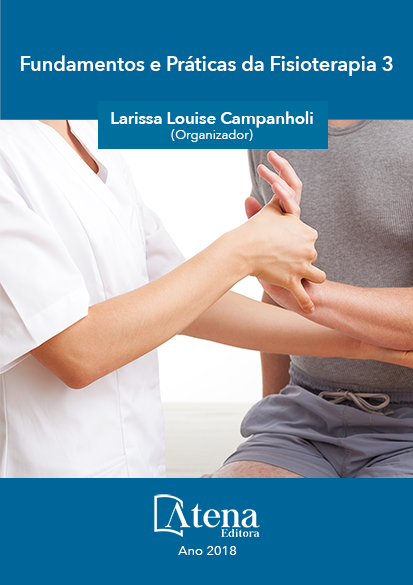
Impacto de um protocolo de Reabilitação Virtual em paciente pediátricos com doenças neuromusculares
As doenças neuromusculares são
caracterizadas pelo acometimento da unidade
motora primária, nesta denominação genérica
há diferentes afecções. A maioria destas
doenças são determinadas geneticamente.
Inicialmente, observa-se hipotonia em certos
grupos musculares, e a evolução desse quadro
ajudará a determinar e diferenciar uma doença
da outra, e todas possuem caráter progressivo.
O objetivo deste trabalho é avaliar os efeitos
de um protocolo de Reabilitação Virtual
(RV) em 6 crianças portadoras de doenças
neuromusculares, que foram avaliadas através
da Medida da Função Motora (MFM) pré e pós
o protocolo de reabilitação virtual utilizado em
um centro de reabilitação em Porto Alegre – RS.
Os pacientes passaram por uma avaliação no
setor de Reabilitação Virtual e outra no setor de
fisioterapia para a realização do MFM inicial.Após
iniciaram o protocolo de reabilitação virtual a fim
de estimular alinhamento, ganho de habilidade
funcional, proporcionar novas experiências e
a auto eficácia, motivação, iniciativa e baixo
risco de lesão. O protocolo teve duração de 6
meses, totalizando 34 atendimentos semanais
de 40 minutos. Ao término do protocolo os
pacientes realizaram o MFM final. A análise
de dados foi realizada através do teste não
paramétrico de Mann-Whitney. Apesar dos bons
resultados de percentuais individuais em cada
dimensão da MFM, não foram encontradas
diferenças estatisticamente significantes pósteste.
Considerando a heterogeneidade do
grupo e o caráter progressivo das doenças
neuromusculares, as alterações observadas
nos pós testes ajudam a comprovar a
eficácia da terapia por reabilitação virtual,
conseqüentemente auxiliando no ganho de
independência funcional e melhora na qualidade
de vida.
Impacto de um protocolo de Reabilitação Virtual em paciente pediátricos com doenças neuromusculares
-
DOI: atena
-
Palavras-chave: Doenças Neuromusculares, Reabilitação Virtual e Medida da Função Motora
-
Keywords: Neuromuscular diseases, Virtual Rehabilitation, Motor Function Measure
-
Abstract:
The neuromuscular disease are
characteristics of the impairment of the primary
motor unit, within this generic denomination there are different disorders. Most part of
these diseases are determined genetically. Initially it is observed hypotonia in certain
muscular groups, and the evolution of this picture will help to determine and differentiate
one disease form another, and they all have progressive characteristic. This present
work aims to assess the effects of a Virtual Rehabilitation (VR) in 6 children affected
by neuromuscular diseases who were evaluated using Motor Function Measure (MFM)
pre and post the virtual rehabilitation protocol applied in a center of rehabilitation in
Porto Alegre – RS. The patients underwent an assessment in the Virtual Rehabilitation
sector and another in the physiotherapy sector for the execution of the initial MFM.
Subsequently started the virtual rehabilitation protocol in order to incite alignment, gain
of functional ability, provide new experiences and self-efficacy, motivation, initiative and
low risk of injury. The protocol had duration of 6 months, totaling 34 weekly sessions
of 40 minutes. At the end of the protocol the patients were submitted to the final MFM.
The data analysis was performed using Mann-Whitney nonparametric test. Although
good individual results were identified in each dimension of MFM, no statistically
significant post-test differences were found. Considering the group heterogeneity and
the progressive characteristic of the neuromuscular diseases, the changes observed in
the post-test help to prove the efficacy of the virtual rehabilitation therapy, consequently
helping in the gain of functional independence and improvement in the quality of life.
-
Número de páginas: 15
- Letícia Friedrich
- Adriana Abelaira Silveira Darley
- Janaína Armendaris
- Victor Silveira Coswig
- Adriana Vargas Perez Monteblanco


